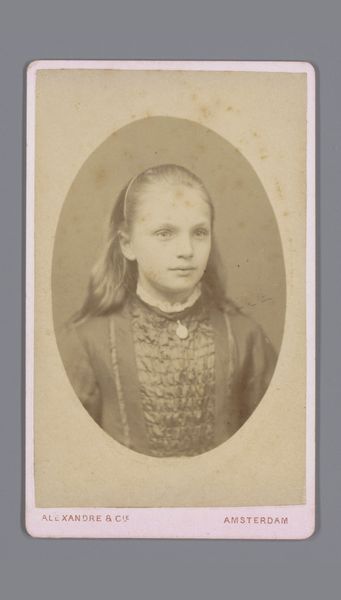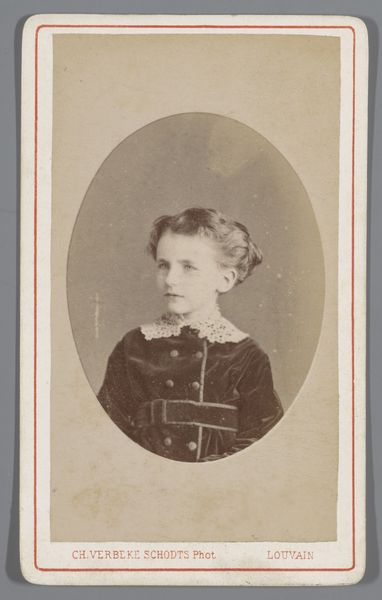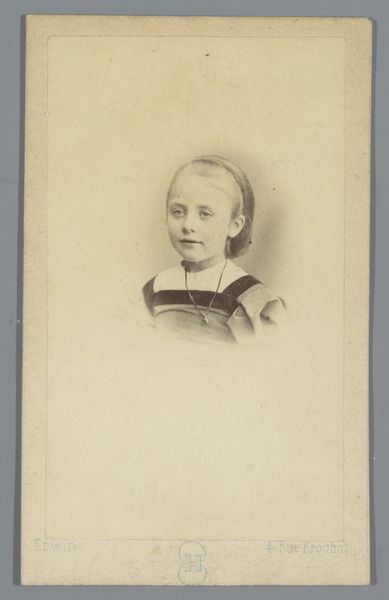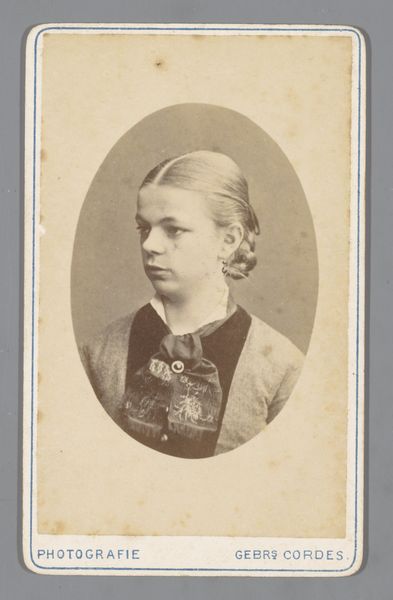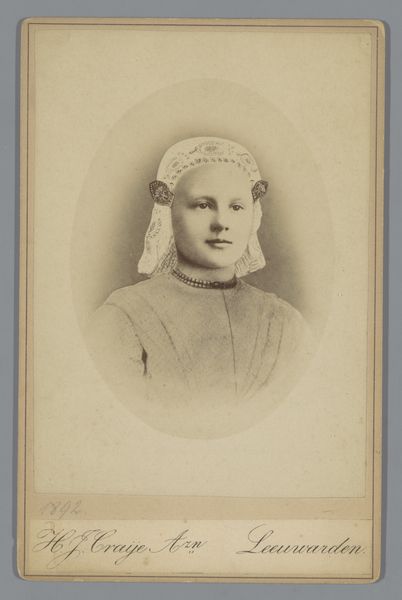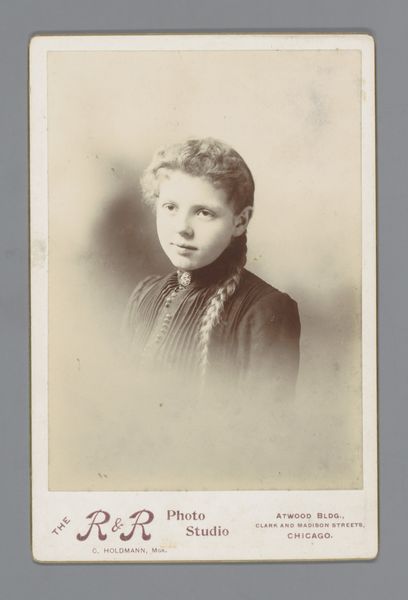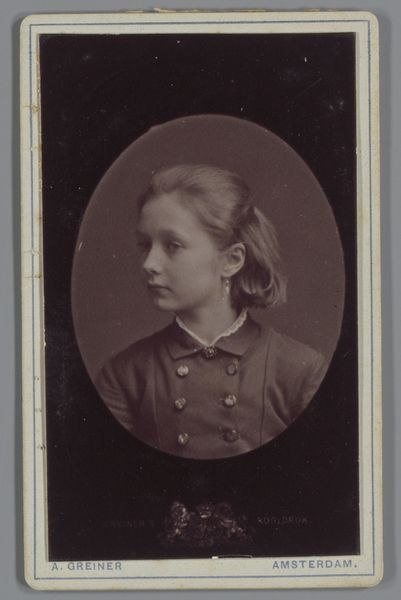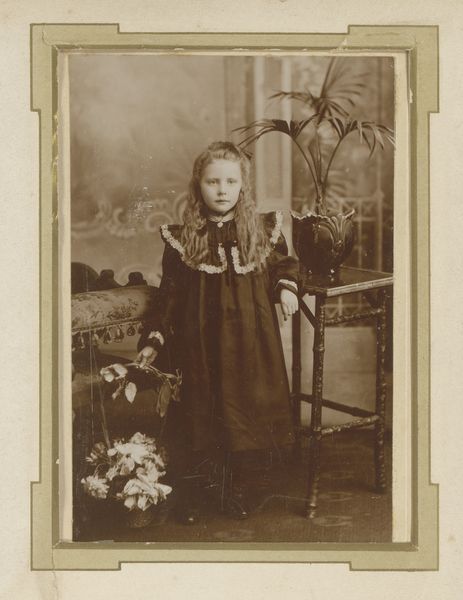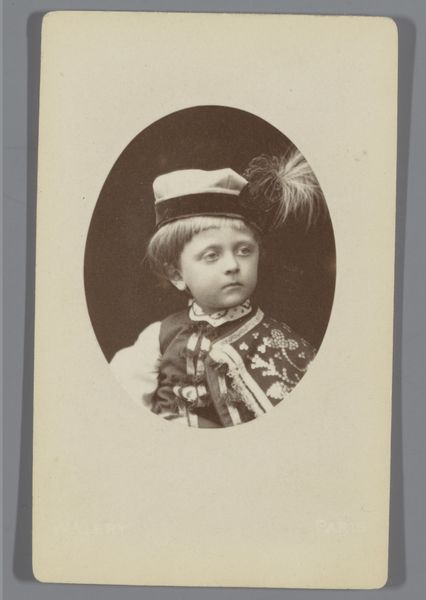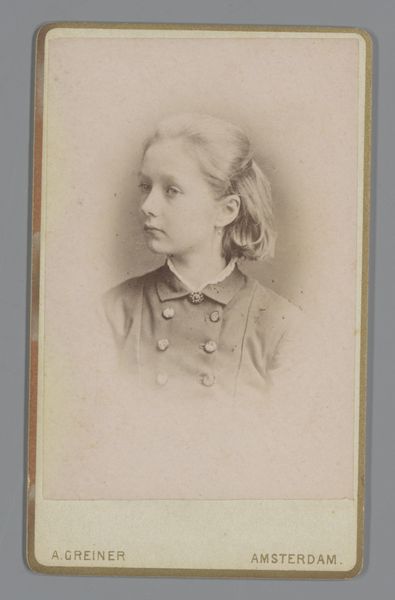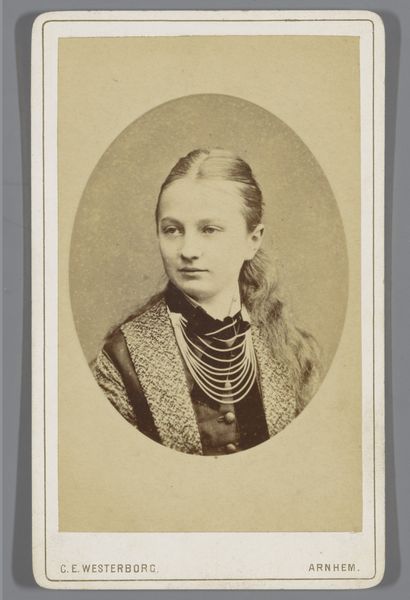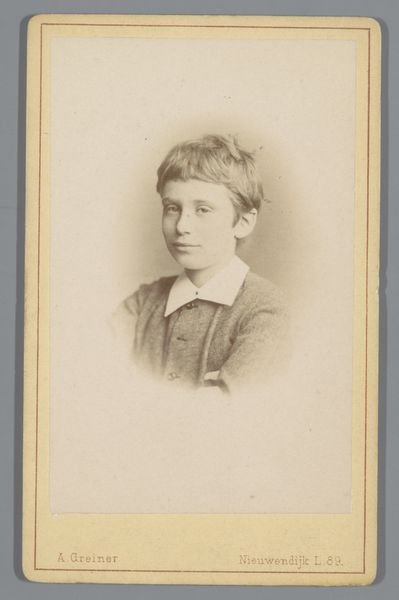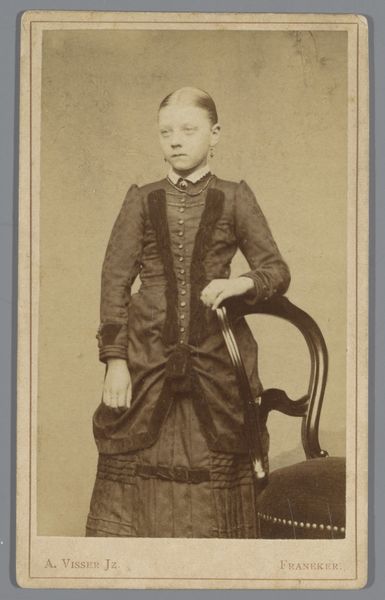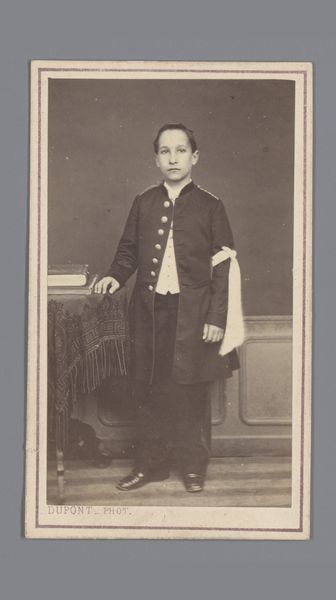
daguerreotype, photography
#
portrait
#
daguerreotype
#
photography
#
historical photography
#
historical fashion
#
19th century
#
history-painting
Dimensions: height 168 mm, width 109 mm
Copyright: Rijks Museum: Open Domain
This portrait of Queen Wilhelmina was made by De Muinck & Co using the albumen print process, a popular photographic technique in the 19th century. The process involves coating paper with albumen, derived from egg whites, and then sensitizing it with silver nitrate. When a negative is placed on the prepared paper and exposed to light, a latent image forms, which is then developed and fixed to create a detailed sepia-toned print. The luminosity and smooth surface of the albumen print enhanced the fine details of Wilhelmina's features and her formal attire. Photography, though relatively new at the time, democratized portraiture. The mass production of images like this was a powerful tool for constructing and disseminating royal identity, shaping public perception. It also speaks to photography's status as both an artistic medium and a commercial enterprise, reflective of wider social and economic changes. Understanding the materials, labor, and context of photographic processes is essential for appreciating its cultural impact, challenging conventional hierarchies of artistic value.
Comments
No comments
Be the first to comment and join the conversation on the ultimate creative platform.
